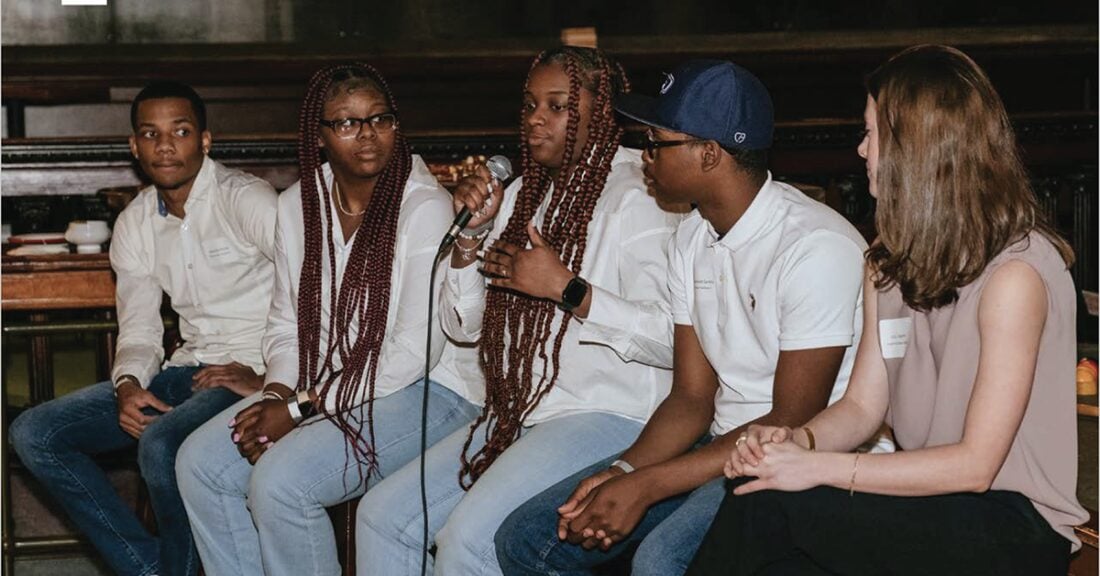Using Personal Experiences to Improve Human Services

A new report from the Center for Behavioral Design and Social Justice examines the benefits of including people with social service systems experience in designing, implementing and evaluating policies and programs.
Funded by the Annie E. Casey Foundation, the report, Experts by Experience: How Engaging People With Lived Experience Can Improve Social Services, highlights the role of “intersectional professionals” — individuals who have both personal and professional experience with the child welfare, juvenile justice and other human service systems.
“Experts by Experience elevates the importance of engaging community members and professionals who have been affected by the programs and systems that policymakers seek to transform,” says Sol Espinoza, a senior associate in Casey’s Evidence-Based Practice Group.
Personal Experiences of Programs and Policies
The movement toward employing professionals with personal experiences with systems is rooted in both moral arguments and practical considerations:
- Including community voices leads to equity.
- User feedback is a basic principle of improving any product or service.
“Our takeaways from this paper are straightforward: When you bring personal experience into program design, outcomes improve; and doing that work correctly requires shifts in mindsets, power and resources,” says the paper’s authors Anthony Barrows, founder of the Center for Behavioral Design and Social Justice, and Kalila Jackson-Spieker in the report summary. “We hope this paper is a helpful guide for anyone interested in beginning or expanding their own efforts to let the voices of affected communities lead their work.”
The report’s findings about engaging with people with personal experience include:
- Service providers improved their knowledge of — and empathy for — program participants, which are crucial for designing better services.
- Community influence on decision-making increased, and networks advocating on behalf of the populations they represent grew stronger.
- Shared design of services increased the quality and efficiency of programs in such areas as community mental health and substance abuse treatment.
How to Better Include Personal Experience in Design and Implementation
Experts by Experience proposes ways to help researchers and practitioners better understand the dynamics of engaging people with personal experience in program and policy design. The report’s calls to action include:
- Conduct new research. Engaging people with personal experience, a topic of increasing interest across the social sciences, provides an opportunity for researchers to develop new lines of inquiry on the efficacy of such engagement in the development and delivery of human services.
- Create innovative research methods. Current methods are not adequate to measure such outcomes as the amount of authentic engagement. Finding new ways to measure outcomes that are important to communities also requires new techniques.
- Grow the pool of intersectional professionals in social services. Employing intersectional professionals, particularly in leadership positions, requires organizations to recognize lived experience as expertise, and to invest resources and facilitate power-sharing accordingly.
Barrows notes, “This paper is an important next step in trying to shape our understanding of where personal experience can make the biggest difference.”
Watch: First-hand experiences show what is and isn’t working in youth probation






